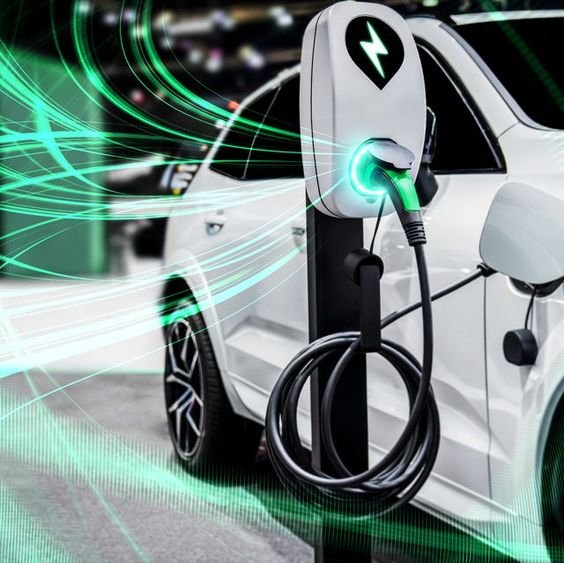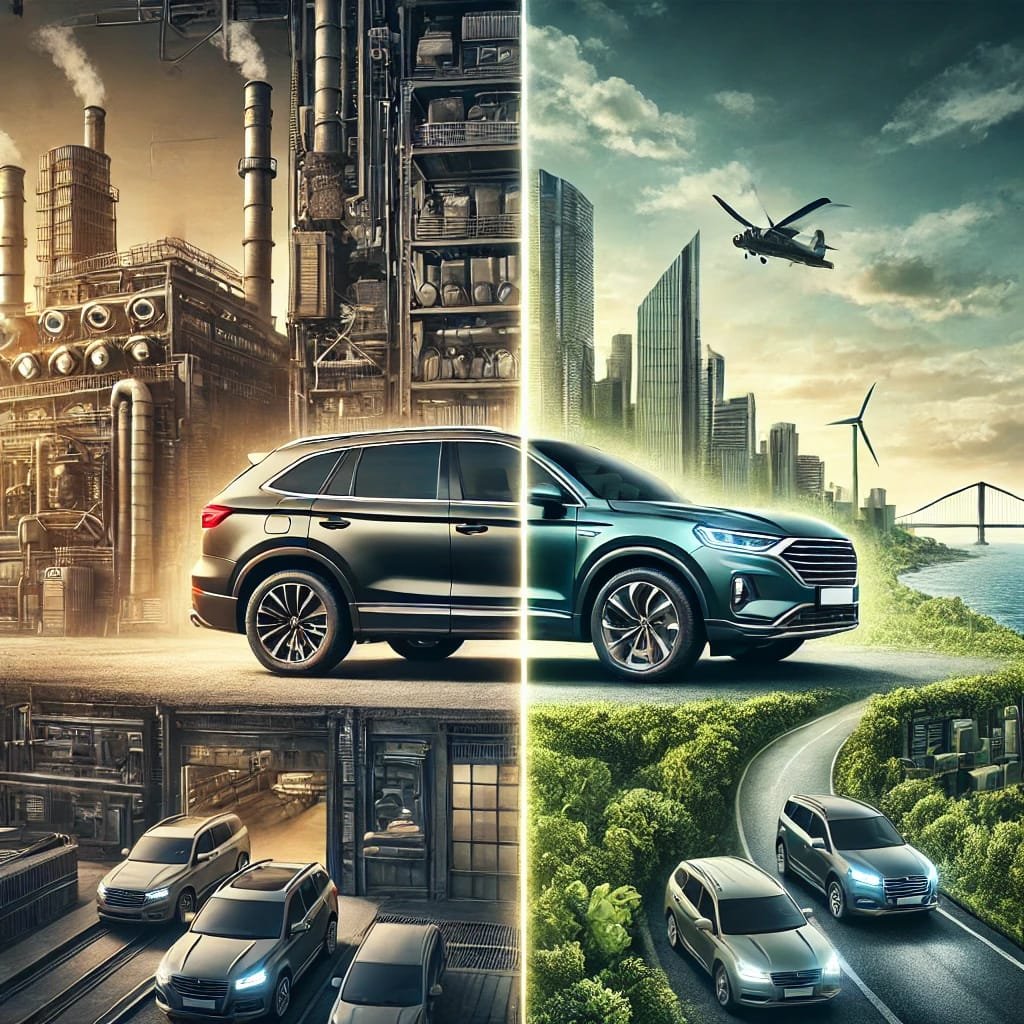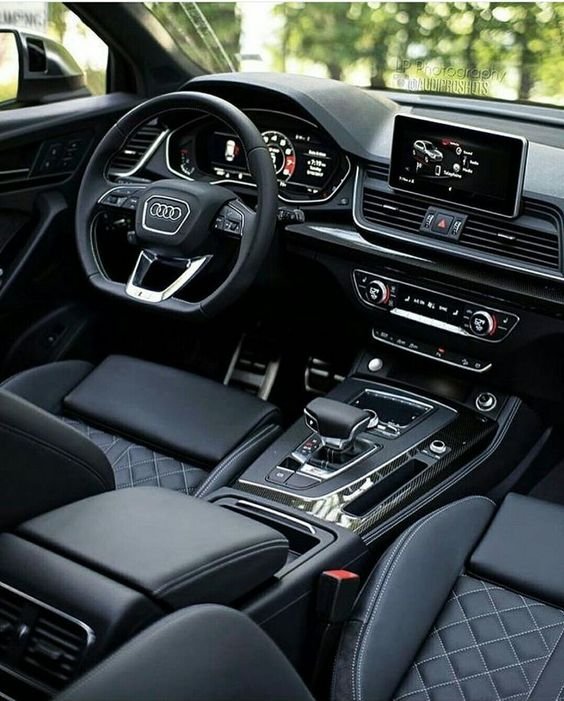
Choosing between a gasoline and a diesel engine can be a critical decision for many vehicle buyers. Each type of engine has its own set of advantages and disadvantages, and the best choice often depends on your specific needs and circumstances. This detailed article will explore the key differences between gasoline and diesel engines, their respective benefits and drawbacks, and provide guidance on which might be better suited to your needs.
1. Introduction to Gasoline and Diesel Engines
Gasoline Engines
Gasoline engines, also known as petrol engines, are the most common type of internal combustion engine used in cars, motorcycles, and light trucks. They operate on the Otto cycle, which involves four strokes: intake, compression, power, and exhaust.
- Operation: Gasoline engines mix fuel with air, compress it, and ignite it with a spark plug to create combustion. This combustion pushes the piston down, generating power.
- Fuel: They run on gasoline, a volatile, easily combustible fuel that is widely available.
Diesel Engines
Diesel engines are typically found in heavy-duty vehicles, such as trucks, buses, and construction equipment, but are also used in some passenger cars. They operate on the Diesel cycle, which also involves four strokes but differs in how the fuel is ignited.
- Operation: Diesel engines compress air to a much higher degree than gasoline engines, making the air extremely hot. Diesel fuel is then injected into the hot air, where it ignites without the need for a spark plug.
- Fuel: They run on diesel fuel, which is less volatile than gasoline but contains more energy per gallon.
2. Performance and Efficiency
Power Output
- Gasoline Engines: Generally, gasoline engines produce higher power outputs and are capable of higher RPMs (revolutions per minute). This makes them suitable for high-performance vehicles and those requiring quick acceleration.
- Diesel Engines: Diesel engines typically generate more torque (rotational force), which is beneficial for heavy-duty applications like towing and hauling. They tend to have lower RPMs but deliver strong, consistent power at low speeds.
Fuel Efficiency
- Gasoline Engines: Historically, gasoline engines have been less fuel-efficient than diesel engines. However, advancements in technology, such as direct fuel injection and turbocharging, have significantly improved their efficiency.
- Diesel Engines: Diesel engines are known for their superior fuel efficiency, largely due to their higher compression ratios and the energy density of diesel fuel. They generally offer better mileage, especially on long highway drives.
Emissions
- Gasoline Engines: Gasoline engines tend to emit more carbon monoxide and hydrocarbons, but modern engines equipped with catalytic converters and other emission control technologies have made significant progress in reducing these pollutants.
- Diesel Engines: Diesel engines produce more nitrogen oxides (NOx) and particulate matter, which have historically been more challenging to control. However, advances in emission control technologies, such as selective catalytic reduction (SCR) and diesel particulate filters (DPF), have helped mitigate these issues.
3. Cost Considerations
Initial Cost
Gasoline Engines: Vehicles with gasoline engines generally have a lower initial purchase price compared to their diesel counterparts. This is due to the simpler design and manufacturing process of gasoline engines.
Diesel Engines: Diesel vehicles tend to be more expensive upfront. The higher cost is attributed to the stronger, more durable components needed to withstand the high compression ratios and greater thermal stresses of diesel engines.
Operating Costs
- Fuel Prices: Diesel fuel is often more expensive than gasoline, although this can vary by region. Despite the higher price, the improved fuel efficiency of diesel engines can offset this cost over time.
- Maintenance and Repairs: Diesel engines are typically more robust and can last longer than gasoline engines, but they require specialized maintenance and parts, which can be more expensive. Gasoline engines, on the other hand, are generally cheaper to maintain but may need more frequent repairs over their lifespan.
Resale Value
- Gasoline Engines: Gasoline vehicles may have a lower resale value compared to diesel vehicles, particularly if the latter have been well-maintained.
- Diesel Engines: Diesel vehicles often retain their value better due to their longevity and fuel efficiency. This can be a significant factor if you plan to sell or trade-in your vehicle in the future.
4. Driving Experience
Noise and Vibration
- Gasoline Engines: Gasoline engines are typically quieter and smoother, offering a more refined driving experience. They have less noise and vibration, making them preferable for many passenger vehicles.
- Diesel Engines: Diesel engines are generally noisier and produce more vibration due to the higher compression and combustion process. However, modern diesel engines have made great strides in reducing noise and improving overall driving comfort.
Acceleration and Handling
- Gasoline Engines: Known for their quick acceleration and responsiveness, gasoline engines are well-suited for sporty driving and vehicles that prioritize performance.
- Diesel Engines: While diesel engines may not offer the same level of rapid acceleration as gasoline engines, their high torque makes them excellent for towing and hauling heavy loads. They provide steady and powerful performance, especially at low speeds.
Suitability for Different Driving Conditions
Urban Driving: For city driving with frequent stops and starts, gasoline engines may be more suitable due to their better acceleration and quieter operation.
Highway Driving: Diesel engines excel in long-distance highway driving, offering superior fuel efficiency and strong, consistent power.
5. Environmental Impact
Carbon Dioxide (CO2) Emissions
- Gasoline Engines: Generally produce higher CO2 emissions per gallon of fuel burned compared to diesel engines. However, advancements in gasoline engine technology have helped reduce their overall carbon footprint.
- Diesel Engines: Diesel engines emit less CO2 per gallon of fuel, thanks to their higher efficiency. However, they produce higher levels of NOx and particulate matter, which have their own environmental and health impacts.
Renewable Fuel Options
- Gasoline Engines: Can run on ethanol blends, such as E10 (10% ethanol) or E85 (85% ethanol), which can reduce reliance on fossil fuels and lower emissions.
- Diesel Engines: Can use biodiesel blends, such as B20 (20% biodiesel) or even pure biodiesel (B100), which offer a renewable alternative to traditional diesel fuel and reduce greenhouse gas emissions.
6. Suitability for Different Applications
Passenger Cars
- Gasoline Engines: Often preferred for passenger cars due to their lower initial cost, quieter operation, and better acceleration.
- Diesel Engines: Suitable for larger passenger vehicles, such as SUVs and trucks, where the benefits of higher torque and fuel efficiency outweigh the drawbacks of noise and vibration.
Commercial Vehicles
- Gasoline Engines: Less common in commercial vehicles due to their lower torque and higher fuel consumption.
- Diesel Engines: Dominant in commercial applications, including trucks, buses, and heavy machinery, where their durability, fuel efficiency, and high torque are essential.
Off-Road and Industrial Applications
- Gasoline Engines: Used in smaller off-road vehicles and equipment, such as ATVs and lawnmowers, where simplicity and lower cost are priorities.
- Diesel Engines: Preferred for larger off-road and industrial applications, including construction equipment, agricultural machinery, and generators, due to their robustness and efficiency.
7. Future Trends
Hybrid and Electric Vehicles
The rise of hybrid and electric vehicles is changing the landscape for both gasoline and diesel engines. Hybrids combine the benefits of gasoline engines with electric motors to improve fuel efficiency and reduce emissions.
- Gasoline Hybrids: More common than diesel hybrids, gasoline hybrids offer improved fuel economy and lower emissions compared to traditional gasoline engines.
- Diesel Hybrids: Less common but available in certain markets, diesel hybrids combine the fuel efficiency of diesel with the benefits of electric propulsion.
Advances in Engine Technology
Both gasoline and diesel engines continue to evolve, with manufacturers investing in new technologies to improve performance, efficiency, and emissions.
- Gasoline Engines: Technologies such as direct injection, turbocharging, and variable valve timing are enhancing the performance and efficiency of gasoline engines.
- Diesel Engines: Innovations in emission control, such as SCR and DPF, are helping to reduce the environmental impact of diesel engines while maintaining their efficiency and durability.
Regulatory Changes
Stringent emissions regulations worldwide are driving the development of cleaner and more efficient engines. Governments are implementing policies to reduce greenhouse gas emissions and promote the adoption of cleaner technologies.
- Gasoline Engines: Regulations are pushing manufacturers to develop more efficient and less polluting gasoline engines.
- Diesel Engines: Stricter NOx and particulate matter standards are challenging diesel engine manufacturers to innovate and reduce emissions further.
8. Conclusion: Which is Better for Your Needs?
Choosing between a gasoline and a diesel engine ultimately depends on your specific needs, driving habits, and preferences. Here are some key considerations to help you make an informed decision:
When to Choose a Gasoline Engine
- Lower Initial Cost: If you are looking for a more affordable vehicle upfront, gasoline engines typically have a lower purchase price.
- Quiet and Smooth Operation: For those who prioritize a quiet and smooth driving experience, especially in urban settings, gasoline engines are preferable.
- Better Acceleration: If you enjoy quick acceleration and sporty driving, a gasoline engine’s higher power output and RPM capabilities will meet your needs.
- Frequent Short Trips: For city driving with frequent stops and starts, gasoline engines offer better performance and convenience.
When to Choose a Diesel Engine
- Fuel Efficiency: If you drive long distances regularly, a diesel engine’s superior fuel efficiency can lead to significant savings on fuel costs.
- High Torque: For towing, hauling, or heavy-duty applications, diesel engines provide the necessary torque and power.
- Longevity: Diesel engines are known for their durability and longer lifespan, making them a good investment for long-term use.
- Environmental Considerations: If reducing CO2 emissions is a priority, diesel engines generally emit less CO2 per gallon of fuel burned. Additionally, using biodiesel can further enhance their environmental benefits.
Both gasoline and diesel engines have their unique advantages and drawbacks. By understanding these differences and assessing your specific needs, you can make an informed decision that aligns with your driving habits, budget, and environmental considerations. As technology continues to advance, both types of engines will become more efficient and cleaner, offering even more options for consumers in the future.
ALSO READ: Mercedes-Benz | A Legacy of Innovation and Luxury







